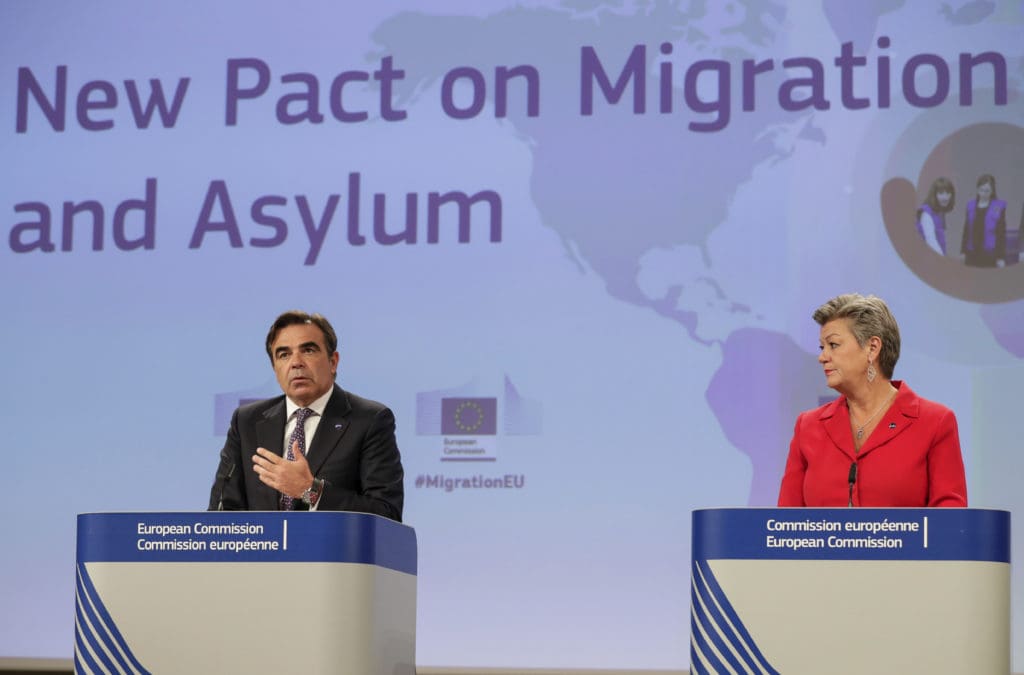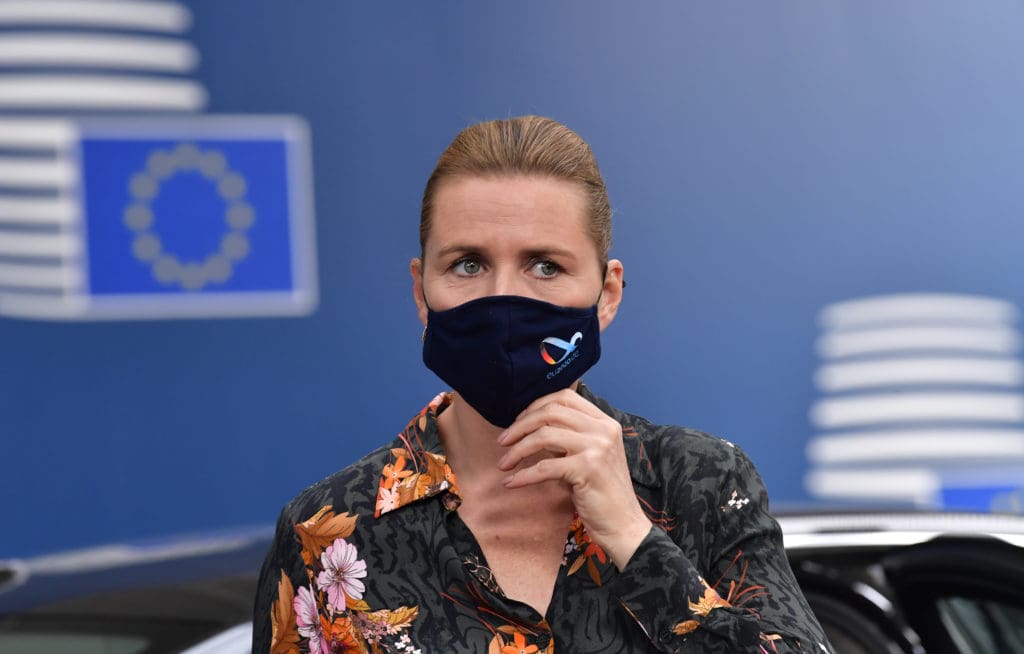Vice-President of the European Commission Margaritis Schinas has revealed that member-states are expected to come to a final agreement regarding the EU Pact for Migration and Asylum unveiled a year ago. As he put it, “We are very close to the German election, soon after, we will have a process of months to form a government that will essentially coincide with the election campaign for the French presidential election.”
The commissioner believes that “immediately after the French elections, we will enter into a very rapid process of convergence and final agreement.” According to Schinas, “the time, the political momentum for this agreement is now.”

Schinas placed anyone in a box who could potentially oppose the deal in as “Europhobic”, claiming that those on the far-right only want borders, and those on the left want no borders at all. In essence, the commissioner sees the Migration Pact as the sensible middle road for dealing with illegal border-crossing, with “the right mix of border control and protection but also humanity and asylum.”
But is it?
Denmark has recently introduced new legislation that compels migrants to submit their asylum applications either in the first safe country they reach, or their country of origin. Denmark is also planning to introduce asylum centers in third countries where all those seeking the protection of the Danish state must wait until authorities decide their application. Surprisingly the legislation was proposed by Denmark’s left-wing Social Democrats, and their main argument was very similar to the commissioner’s wording about proper border controls, as well as a humane approach to those in need of protection. Yet, when asked about the Danish law, Schinas has dismissed it saying, Europe cannot “outsource its problems to others”.

So how could the commission and the Danish government — both entities that are claiming to fight for secure borders while also providing proper care for those in need — come up with such a diametrically opposed solution?
The Migration Pact that Schinas has proposed would process all asylum applications within the borders of the EU, and would distribute applicants among member states while applicants wait for a decision. And although even within the liberal EU asylum system some will no doubt have their applications rejected, there are currently no effective mechanisms and no viable legal system in Europe to force failed asylum seekers and economic migrants to return to their country of origin. The number of illegal migrants returned to their country of origin after a failed application process is negligible, a failure that is not only seen in EU countries. Britain, for instance, has failed to remove a single Channel migrant since illegal crossings from France started a few years ago.

The other notable detail in Schinas’ statement is his belief that the momentum for the Migration Pact is right now, and it should be introduced in April. It is clear that Schinas believes the election outcome for both France and Germany is already a foregone conclusion, with pro-EU, pro-migrant political parties coming to power which will accept Brussels’ position on the EU Migration Pact. Schinas is banking on the victory of the left in France’s April elections, but he is also likely thinking that with Angela Merkel gone in Germany, and a far-left Social Democrat (SPD) chancellor at the helm, there won’t be any moderating force that could stop the commission from coercing Central-Eastern European countries, which are against migrant quotas, from accepting it against their will.
If the left to far-right coalition should defeat Viktor Orbán’s Hungarian government in April 2022, the commission would only have to deal with less vocal opponents of the pact.
Schinas also appears to be well aware that migration is a hotbed topic for upcoming elections, particularly in France, where the vast majority of the population is against accepting more migrants. Any move by the EU to adopt the EU Migration Pact could be used against the EU’s preferred victors during upcoming national elections. For example, France’s Marine Le Pen has come out strongly against the proposed Migration Pact, calling it the “suicide of Europe” that would allow 75 million more migrants to settle on the continent. Schinas and those in Brussels are waiting for the right time to pass the pact — after elections are over — and the voting public has little option but to accept Brussels’ position on the matter.

By counting on a pan-European shift to the left, perhaps Schinas knows something about the outcome of a number of elections in EU member states that gives him the confidence to pre-empt the will of European nations. This has not escaped the attention of Judit Varga, the Hungarian justice minister either, who reacted by saying Schinas’ confidence is a sign that disregarding “citizens’ opinion and willfully misleading voters has become the new European value for the EU institutions.”
Hungarian Prime Minister Viktor Orbán had also stated with regards to the proposed Migration Pact that the European Commission is trying to repackage migrant quotas into a migration pact in vain, as these will still remain only migration quotas, a policy the Hungarian government will vehemently oppose.






